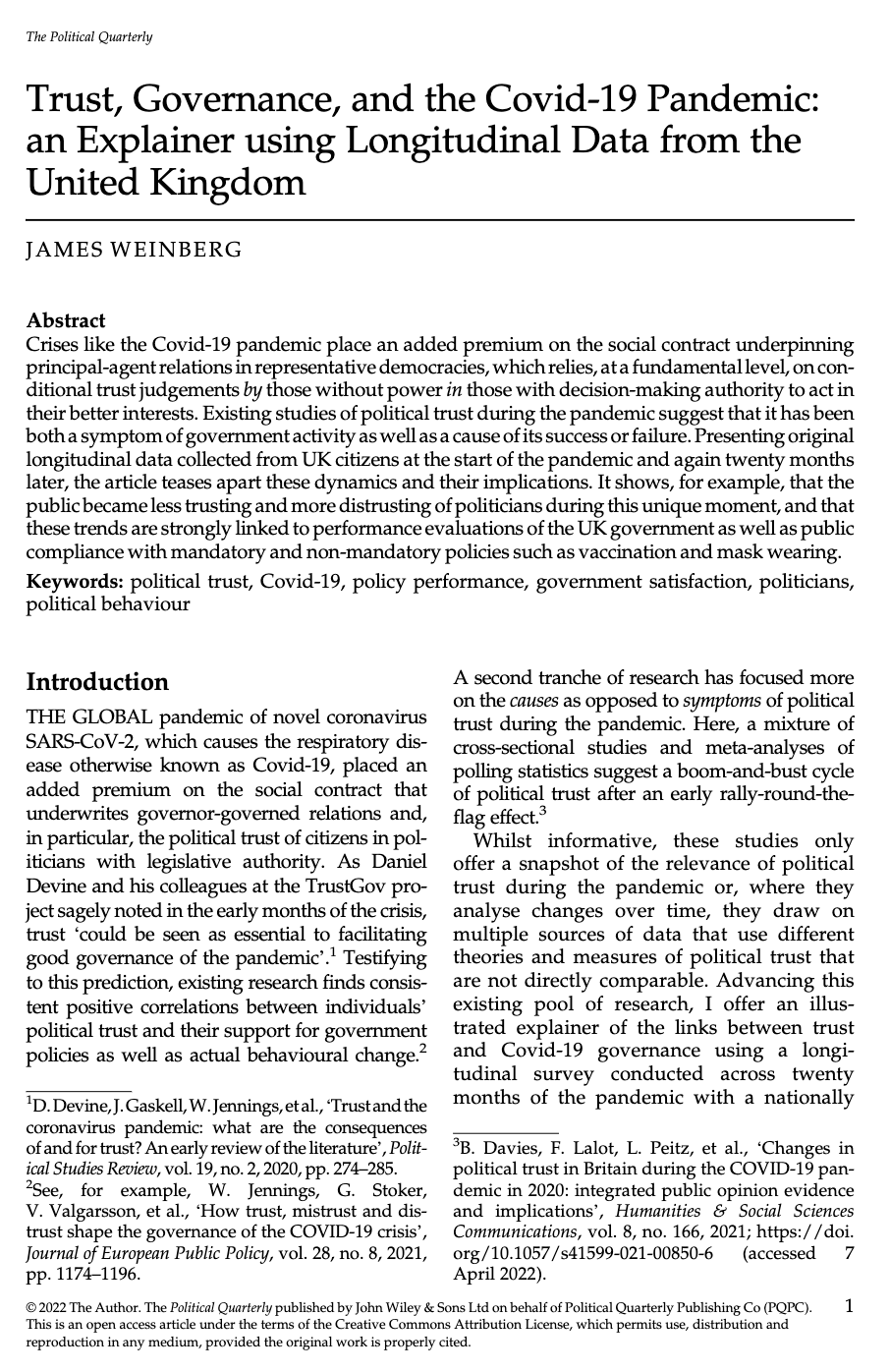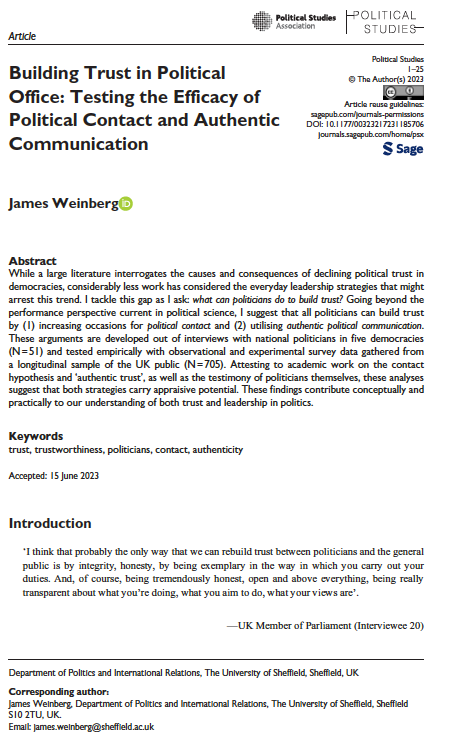Psychological Governance
In order to better understand and respond to the challenges facing liberal democracies as well as authoritarian regimes, I believe that political scientists need to engage in direct research with those who actually occupy political office. In particular, we need to ask who they are, why they do it, and what they think or feel about a job that few of us would ever care to contemplate. At the same time, political elites are uniquely difficult to reach for academic research and the phenomena outlined above are even harder to observe. Analysing self-report survey and interview data from politicians in comparative contexts, as well as textual data and parliamentary records, my research seeks answers to important questions about good and bad governance by exploring the personalities, attitudes, emotions and behaviours of those with power.
Current projects…
The Potential of Digital: Optimising Trustworthy Digital Contact (The PODTRUST project)
Funded by the Trans-Atlantic Platform and the national research councils of the UK, Canada, France, and Poland.
High trust interactions between citizens and political actors such as politicians, government officials, and journalists, enable collective action, inspire participation and ensure adherence to political rules and norms. Yet these bonds are subject to challenge and they are becoming increasingly frayed. Funded through the Trans-Atlantic Platform, this project explores whether and under what conditions digital communication can strengthen or erode political trust – specifically looking at communication between politicians and the public via email, social media, chatbots, social media influencers, and AI-generated synthetic media. As well as testing general effects (using surveys, experiments, and field tests), the project team also expects minority communities will have different expectations for communication with political actors, and we are therefore particularly interested in how women, ethnic minorities and diaspora communities respond to alternative forms of contact. The project will run from 2025-2028 in the UK, Canada, France and Poland. The project team includes myself, Katherine Dommett (also University of Sheffield, PI), Elizabeth Dubois (University of Ottawa), Damian Guzek (University of Silesia, Katowice), and Karolina Koc-Michalska (Audencia Business School).
Comparative Analysis of New Politicians (The CANPOL project)
Despite their importance for the health of democracy, we know very little about newly elected politicians who, in most cases, are starting a job that comes without formal training or support, no defined success criteria or job description, and very little control over high expectations and increasingly precarious policy challenges. Studying new politicians in comparative contexts, this international research project seeks to understand how new politicians acclimatise to this unique job and how they learn what works, what does not work, and ultimately how they can be effective representatives. The project focuses on three areas of democratic work – trust (including new politicians’ perceptions of public trust and their approach/efforts to build trust), wellbeing (including their occupational and mental health, and their coping strategies), and leadership praxis (including their means and modes of communication, responsiveness to public opinion, and legislative decision-making). The project will run from 2024-2028, engaging a longitudinal cohort of survey and interview participants from five countries. This project will lead to recommendations/toolkits for politicians (and the institutions that structure their working lives) about how to work effectively, represent ‘well’, and keep the job sustainable.
Recently completed projects…
GOVERNING IN AN AGE OF DISTRUST
Funded by the Leverhulme Trust
Politicians are singularly important in democracies for their work in creating legislation, representing constituents and holding government to account, but we know very little about how they appraise, cope and perform in a climate of extreme and generalised public distrust in anything political. Funded by a fellowship from the Leverhulme Trust, my last research project explored this topic using theories and methods from the field of political psychology. The following video provides an accessible summary of the project and its findings. This project also informs a book on the same topic titled Governing in an Age of Distrust.








